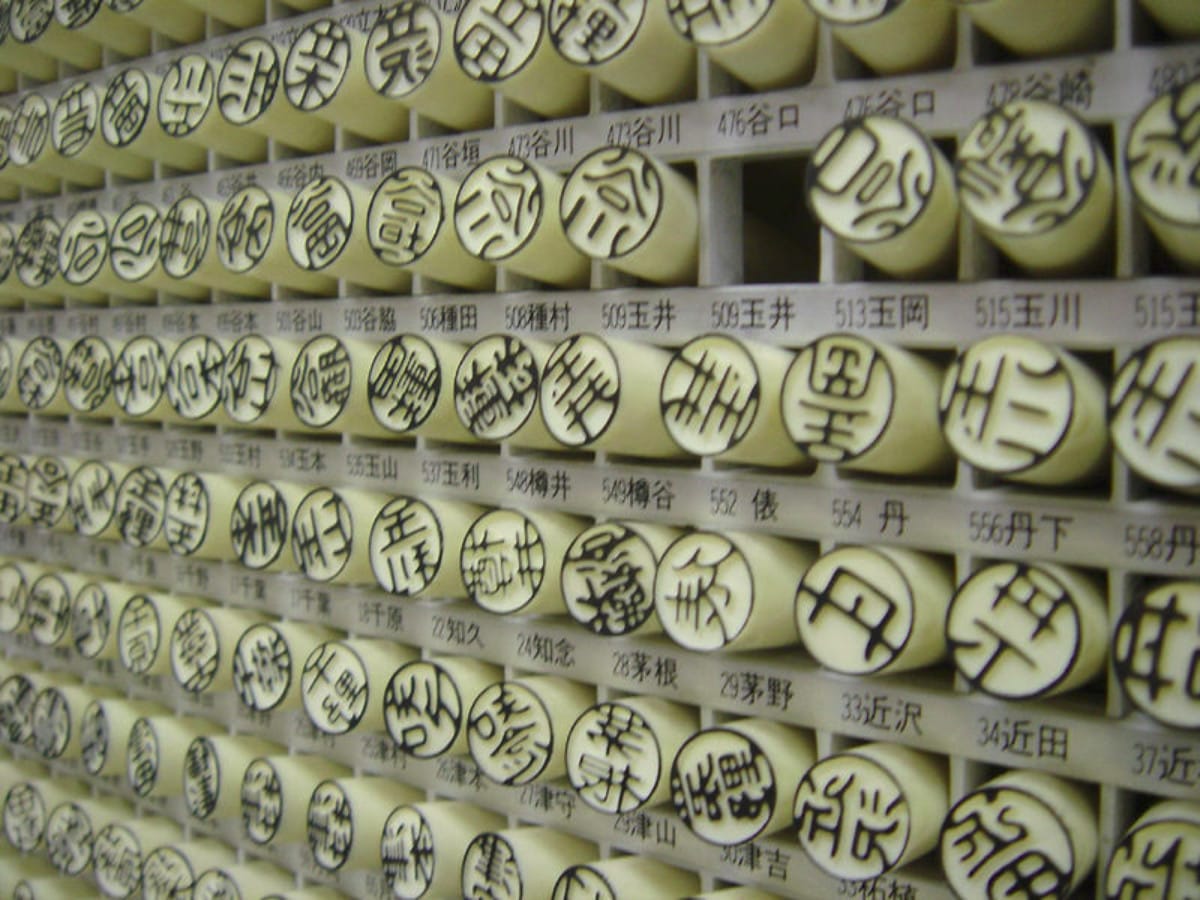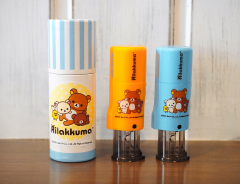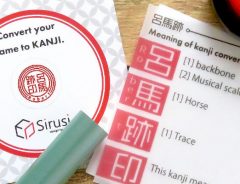
Source: Angie from Sawara, Chiba-ken, Japan / CC BY (https://creativecommons.org/licenses/by/2.0)
Japan debates leaving behind the ancient custom of hanko seals
Related Article
-

Japanese Robotics Solution Stamps Hanko And Signs Contracts, Baffles Twitter Users
-

Japan Post Sells “Tiny Universe” With Their New Stamp Series
-

Japanese aquarist gets seal of approval for his muscular physique
-

Personalised Rilakkuma hanko lets you stamp documents with San-X’s signature cuteness
-

Leave cute cat paw prints in cement or any surface with 3D stamp by hanko maker Ono Inbō
-

Convert Your Name To Kanji And Stamp It Your Way With Personalized Japanese Hanko Seals


Despite Japan's high-tech image abroad, there is, at times, a surprising lack of modern technology. This is particularly true in business settings. Many offices still rely on fax machines while certain companies have been slow to leverage internet technology to its fullest. Although conditions are improving, other advancements like digital payments have also lagged behind less developed countries.
Nevertheless, the COVID-19 pandemic has a way of shaking things up. Just a few months ago, Japanese corporate leaders would have balked at the notion of employees working from home en masse. Yet, with a state of emergency currently in effect, residents have no choice but to turn to technology to maintain busy work schedules as they establish dining room offices at home.
However, the teleworking system seemingly takes some getting used to. While some families are enjoying an increase in time spent together, others are struggling to make the adjustment. As we at grape reported, #coronadivorce has been trending as married couples find themselves going stir-crazy and blaming one another.
As frazzled couples bicker about their future, it seems Japanese culture is at a similar crossroads. An iconic item, the hanko stamp, is failing to function as a signatory device in the current online, teleworking business world. The issue is so severe that Prime Minister Shinzo Abe is openly contemplating whether or not businesses should ditch the historically essential, and markedly beautiful seal altogether.
Hanko Seals in Japan
In Japan, residents do not sign documents, but rather use a personalized stamp known as a hanko or an inkan. These small, personalized seals are often made from wood or plastic, although higher-end versions are made from stone, deerhorn, or even precious metals. They are engraved with an individual's name and packaged with a red-ink stamping pad. Overall, hanko seals function much the same as signatures in Western countries.
Hanko have been used throughout Asia since time immemorial. The first recorded use in Japan occurred in AD 57. At that time, the emperor and his inner circle used solid gold seals as a mark of their authority. Nobility and samurai followed suit hundreds of years later and began using personalized stamps for their affairs. General use by the Japanese public, however, did not occur until the 19th century.
In modern-day Japan, hanko for common names are available at painfully low prices. Some can even be purchased from vending machines for about 500 JPY ($4.70). There are also novelty versions available like Pokémon and Hello Kitty hanko.
On the other hand, residents seek professionally engraved seals for more important occasions. Known as jitsuin 実印, these officially registered seals are used to conduct business and other legally binding agreements. The dimensions and specifics of jitsuin are closely regulated by Japanese law, and as such, they are concerned official and difficult to counterfeit. While they are available for as little as $20, most professionally engrave jitsuin cost upwards of $100. Residents typically use a single jitsuin for decades and may only replace them after significant life events such as divorce.
Prime Minister Abe's Proposal
In early April, Prime Minister declared a state of emergency. While the order was originally limited to Tokyo and six other districts, it was later expanded to include the entire nation. Eventually, the order was extended an additional month.
In order to help residents remain at home, the Abe administration is undergoing a review of the traditional hanko system. The practice is particularly burdensome during the pandemic as residents and corporate managers alike are required to visit administrative offices in order to submit documentation. If the hanko system is successfully curtailed, the change will result in an increased reliance on online systems.
During a session of the Council on Economic and Fiscal Policy, the Prime Minister noted, “We have to review the system and its operation in a swift and user-oriented manner. We’ll draw up guidelines at an early date for reviewing the practices of affixing seals and submitting paper documents as a way to promote teleworking.” If the council has it's way, telecommuting will likely be significantly expedited. However, in a painfully conservative society, this comes at the heavy price of relegating a piece of ancient culture to the history books.